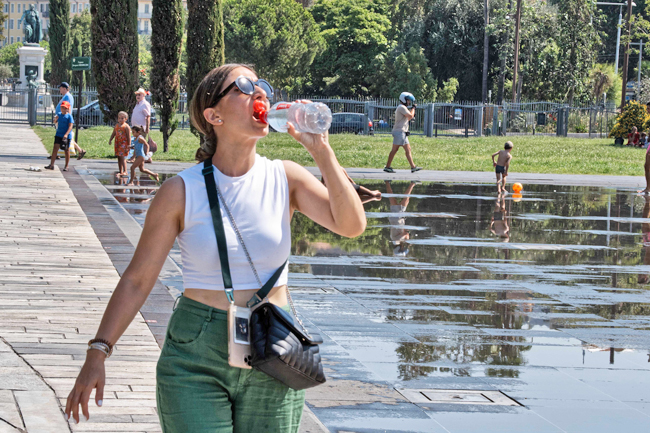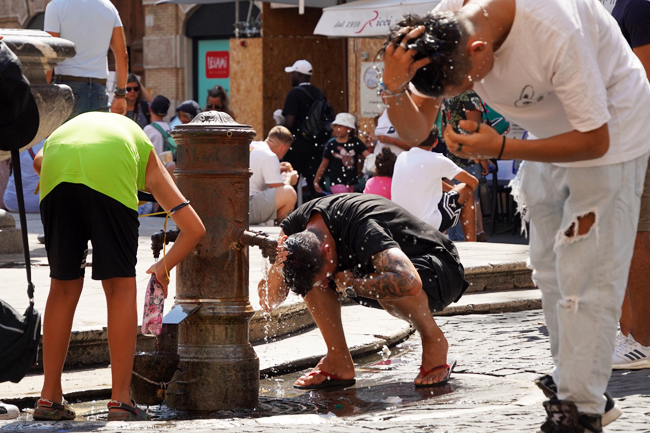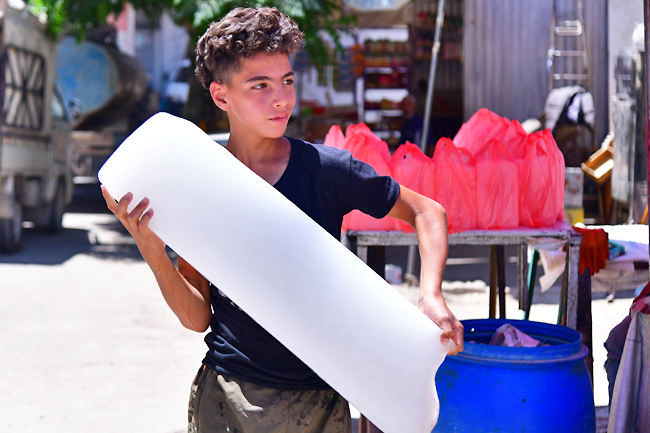ANN/THE STAR – Temperatures have been on the rise across the world for the past couple of months..
The exposure to direct sunlight can lead to heatstroke, and indoor spaces can be very hot, leaving people lethargic and suffering from symptoms such as body temperature, dizziness, lack of appetite and abdominal pain.
Many are resorting to simple remedies like ice water and air conditioners to deal with the heat. One of the fundamental philosophies of traditional Chinese medicine (TCM) is its Holistic View, which recognises that the external environment influences changes within the body.
These changes are categorised by TCM into six external pathogenic factors: wind, cold, heat, dampness, dryness and fire.
TCM identifies natural factors with “hot” characteristics as heat or fire factors, with fire representing the more intense form of heat.




Heat and fire factors often present with symptoms such as intense heat sensation, accompanied by increased appetite, thirst, yellowish urine and constipation, as these factors can deplete body fluids.
Fire factors tend to ascend in nature, resulting in symptoms primarily occurring in the upper body. Here are five basic TCM tips on how to reduce your “heat”.
It is advisable to drink water in small amounts frequently, with each intake not exceeding 300 millilitres, to stay hydrated.
STAYING COOL AND HYDRATED
However, simply drinking cold water may not be sufficient to alleviate the internal heat that accumulates in the body.
In such cases, you can try brewing teas with herbs that are refreshing and cooling in nature, such as mint, chrysanthemum, honeysuckle, mulberry leaves and monk fruit.
These teas not only help relieve external heat, but also clear internal heat accumulation.
For individuals who experience mouth dryness, thirst and dry stool, a mixture of rock sugar and American Ginseng beard (or fibre) can be beneficial. Those experiencing a sticky sensation in the mouth, as well as sticky stool, can try a mung bean drink. Aiyu jelly, grass jelly and Gui Ling Gao are traditional cooling herbs. Black plum and rock sugar boiled together into sour plum soup have the effect of nourishing the yin (water element) in the body.
ADJUSTING INDOOR AND OUTDOOR ACTIVITIES
Apart from drinking iced water, many of us turn to indoor air conditioning to keep cool.
According to TCM theory, prolonged exposure to low temperatures from air conditioning can disrupt the natural ventilation of the skin. Hence, it’s recommended that individuals working in air-conditioned environments engage in light aerobic exercises after work to induce mild sweating.
This allows the skin to ventilate naturally and break the stagnation of yang (fire element) energy in the body during hot weather.
When using air conditioning at night, it’s important to set the temperature at a moderate level to avoid excessive cooling. Ideally, the indoor temperature should not deviate significantly from the outdoor temperature. A range of 22°C to 26°C is considered suitable for most people. This should be adjusted to 26°C to 28°C for those who are frail or elderly. During hot weather, the body expends a lot of energy during the day, leaving people prone to feelings of fatigue.
RESTORING ENERGY THROUGH SLEEP
According to TCM, this is because the yang energy is vigorous in hot weather, leading to increased sweating and accelerated metabolism. The heightened fire element in the heart meridian during hot weather can lead to irritability, particularly at night, resulting in shallow sleep and daytime fatigue.
TCM practices the concept of ‘Zi Wu sleep’, which means following the ideal timing for restorative sleep based on the body’s natural energy flow, which corresponds to specific hours of the day and night. “Zi” corresponds to the hours of 11pm to 1am, while “Wu” corresponds to the hours of 11am to 1pm. Therefore, taking an afternoon nap after lunch for about 20-30 minutes around noon, and sleeping earlier than 11pm is recommended to replenish energy. – Dr Teo Chiah Shean


